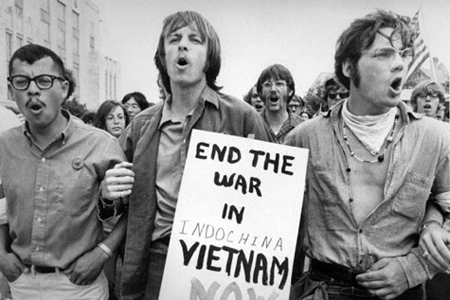Because of its tumultuous history and especially because of its ‘communist’ label, Vietnam reaches deep into the emotional and other subconscious levels of most Westerners. And although the country has changed tremendously…
Because of its tumultuous history and especially because of its ‘communist’ label, Vietnam reaches deep into the emotional and other subconscious levels of most Westerners. And although the country has changed tremendously since the end of the traumatic American War in 1975, myths have endured, fuelled by the lack of exchange and communication between Vietnam and the Western world. However, most myths do have some pastor present elements of truths, so in order to help you separate exaggeration from reality, here are a few pointers:
.jpg)
Vietnam is littered with mines and leftover war ordnance: Tell Auntie not to be afraid. Chances that you would step on an unexploded mine are extremely slim. Yes, people do still die from UXO … but most are metal recyclers that dig deep to find the last scraps of metal left. They usually get blown to pieces while trying to saw open live bombs. Unfortunately, children playing with newly found ‘toys’ are also prime victims of UXO. Vietnamese must still hold grudges against Americans and Westerners: Vietnamese have a saying that roughly translates into “let bygones be bygones”. Of course not all individuals think alike bur you will find very few people, including those who have directly suffered from the American War or who have lost friends and family, who will hold grudges against individual travelers. Most Vietnamese also make a considerable difference between individual Western travelers and Western governments.
Vietnam is governed by a handful of old but omnipotent leaders: Vietnam’s leaders actually retire before dying on the job. Of course, you wouldn’t find any forty-year old in the three most important positions (the current President, Secretary General of the Communist Party and Prime Minister are all in their sixties) but they become ‘advisors’ to the government and leave room for younger players well before they reach 80. As for the actual distribution of power, the Communist Party’s politburo holds the lion’s share. But it’s a complex system where business, army, national security, and politics intertwine. Not to forget the Vietnamese people … you’ll be surprised at how much people ‘vote with their feet’, choosing to comply or not with the different decrees and directives coming down from their government. The Vietnamese way is always to try and reach consensus. For any directive to be implemented, it needs the support of all implicated parties. Consensus is sometimes reached only after arduous if bitter internal struggles, but only the accepted are then presented publicly.
Vietnam is a very poor country: Well, this one’s true. Vietnam is still one of the world’s poorest countries. In fact in 2001 it ranked 120 amongst 190. However it is engaged in a race to climb the ladder. During the 1991-2000 decade the country’s GDP growth averaged 7.5 percent. Even more impressive is that it managed to channel a major portion of this new wealth to the poorest households. By 2000, the poverty rate had been reduced to two-thirds of the 1990 rate. The international community considers that Vietnam can boast one of the best performances in terms of poverty reduction. At the same time, Vietnam’s Human Development Index IS higher than expected, ranking 101, a hefty 19 places above its economic index. That means that the country has done much better than other nations of the same wealth. In comparison, countries such as the USA, Kuwait, and Switzerland all have HDI rankings lower than their wealth rankings.

Vietnam doesn’t look like a poor country: Remember that 80 percent of the population lives in the countryside. Most visitors will only see the more developed urban and touristy areas. Furthermore, with the liberalization of its economy, Vietnam is also experiencing a widening gap between the richest and the poorest sectors of its population. Another element that contributes to hide the extreme poverty experienced by a large sector of the population is the overwhelming generosity of the people. If you are invited to a farmer’s household, you will be served a meal that the family probably has not and cannot enjoy more than a few times a year. In such circumstances, it is better to eat lightly – a refusal would be considered impolite – in order to prevent the family from suffering long term consequences of their hospitality.
Being a communist country, most people obviously live terrorized or brainwashed by their political leaders: If that’s your idea of Vietnam, do come and have a look. It’s come a long way since 1975. You will find more (real, not faked) smiles per capita, more optimistic youth, more national pride than in most countries. If there was such a thing as an ‘optimism index’, Vietnam would certainly be at the top of the list.
Communist propaganda is everywhere…including in those loudspeakers that blast you out of bed at five in the morning: Not knowing the language, most Westerners have been brainwashed to believe that every loudspeaker and every billboard spews out political propaganda. The fact of the matter is that, as annoying as these loudspeakers may be, especially at the crack of dawn, their content is that of most community radios and rural programming around the world. Items such as agricultural programmers, health and child care issues, and daily community news (announcing water cuts, pipe repairs, closed streets as well as local activities and a slew of ‘social publicity’ aimed at educating people on safety and traffic rules, parking regulations, use of sidewalks, etc.)

